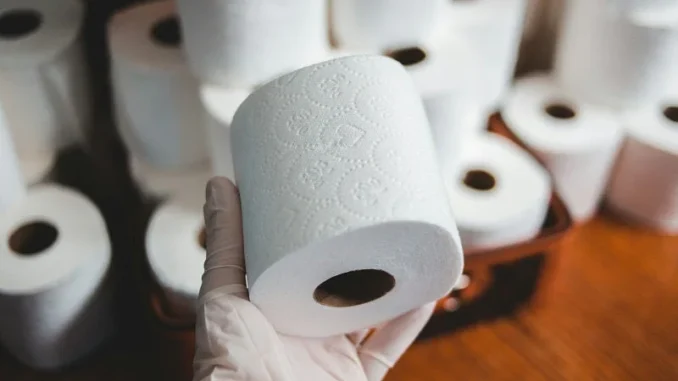
Toilet paper is one of those everyday items that most people cannot imagine living without. It is convenient, soft, and considered hygienic by many. However, what most people don’t realize is that toilet paper can pose hidden dangers to health and the environment. While it may seem harmless, using tissue paper regularly comes with risks that deserve attention...CONTINUE READING THE FULL ARTICLES HERE
One of the biggest concerns is the chemical content found in most commercial toilet papers.
To achieve the soft, white appearance, many manufacturers use chlorine bleach and other harsh chemicals.
Over time, these substances can cause irritation in sensitive areas, leading to itching, rashes, or even infections.
Some studies suggest that prolonged exposure to such chemicals may disrupt hormonal balance or increase the risk of certain health conditions.
Another danger lies in fragranced or scented tissue papers.
While they may smell pleasant, the artificial fragrances are often made with synthetic chemicals that can trigger allergies or worsen existing conditions like asthma.
For women, especially, using perfumed toilet paper has been linked to urinary tract infections (UTIs) and vaginal irritation because the chemicals interfere with the body’s natural pH balance.
Additionally, toilet paper is not the most hygienic option.
Wiping may remove some dirt, but it doesn’t clean thoroughly.
Traces of waste can remain and cause bacterial growth, leading to infections or unpleasant odors.
That’s why many health experts recommend alternatives like bidets, water, or wet wipes (unscented and chemical-free) for better hygiene.
On a larger scale, toilet paper use also affects the environment.
Millions of trees are cut down every year to meet global demand, contributing to deforestation and climate change.
The production process also consumes large amounts of water and energy, making it far from eco-friendly.
In conclusion, while toilet paper may seem like a necessity, it’s important to understand its dangers.
It can cause skin irritation, infections, allergic reactions, and even harm the environment. Safer alternatives such as water, reusable cloths, or eco-friendly tissue options can help reduce these risks and promote both personal and environmental health.
Kindly Follow Our WhatsApp Channel
Disclaimer: This content including advice provides generic information only. It is in no way a substitute for a qualified medical opinion. Always consult a specialist or your own doctor for more information. NEWSHOUR does not claim responsibility for this information.
